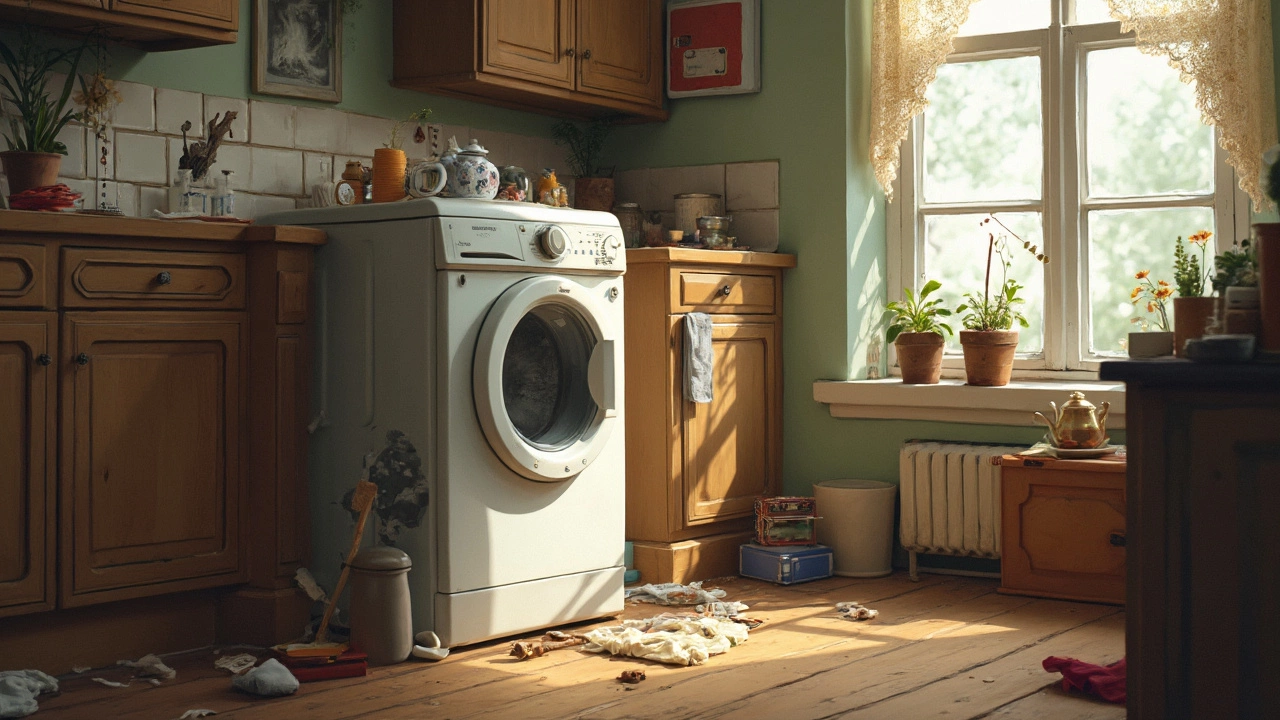Washing Machine Repair – Quick Fixes for Hinckley Homes
Got a noisy, leaky or dead washer? You’re not alone. Most households face a washer problem at least once a year, and the right fix can save you a few hundred pounds. Below you’ll find the most common faults, easy checks you can do at home, and clear guidance on when it’s time to call a professional.
Common Washer Problems and DIY Checks
First, take a quick look at the basics. Is the machine plugged in? Does the power outlet work? It sounds simple, but a loose plug or tripped breaker is behind many “won’t start” calls.
If the washer turns on but won’t fill, check the inlet hoses. Look for kinks, frozen filters, or a clogged screen where the hose meets the tap. A quick clean with a brush often restores flow.
Drainage issues are another frequent headache. A humming motor but no water out? The pump filter might be blocked with lint, coins or small socks. Pull the filter (usually behind a small panel), clean it, and run a short cycle to see if the problem is gone.
Unusual noises? A thumping drum often means a worn drum belt or loose drum paddles. If you hear a high‑pitched squeal, the motor bearings could be wearing out. Those parts need a pro’s tools, but spotting the sound helps you explain the issue clearly.
For those who like to tinker, our post “Can You Repair a Washing Machine Yourself? Tips, Facts, and Must‑Know Fixes” breaks down which fixes are safe for DIY and which are best left to experts.
When to Call a Pro
If you’ve checked power, hoses, and filters and the washer still misbehaves, it’s time to call a technician. Modern machines have electronic control boards, water level sensors, and motor couplers that require specialist knowledge and proper testing equipment.
One of the costliest parts is the control board, as highlighted in “Most Expensive Part to Replace on a Washing Machine: What You Should Know.” Replacing it yourself can be risky, and a mis‑wired board can cause further damage. A qualified repairer can confirm whether the board truly needs replacement or if a simple reset will do.
Another scenario is a persistent leak after you’ve tightened hoses and seals. The leak could be coming from the tub seal, which sits behind the drum and needs the machine partially disassembled. Attempting this without the right tools often leads to more damage.
Our local Hinckley team offers a fast response, a clear quote, and a guarantee on parts and labour. We’ll diagnose the fault, explain the repair options, and only fix what’s necessary – no hidden fees.
Want more detail on specific faults? Check out our guide “The Most Common Washing Machine Failures and How to Fix Them” for step‑by‑step advice on water not draining, error codes, and drum noises.
Remember, regular maintenance helps avoid big repairs. Leaving the door open after each wash, cleaning the detergent drawer, and running a monthly clean cycle keep mould and residue at bay. When you spot a small issue early, it’s usually a cheap fix.
So, whether you prefer a quick DIY check or need a pro to handle a complex fault, we’ve got you covered. Give us a call, describe the symptom, and we’ll be at your door in Hinckley ready to get your washer spinning again.
22 December 2025
·
0 Comments
Learn which washing machine parts most commonly fail and how to spot the signs early. From drum bearings to drain pumps, know what to check before calling a repair tech.
Read more
19 June 2025
·
0 Comments
Tired of dealing with a broken washer every few years? This article breaks down which washing machine brands are the least likely to give you headaches, using real repair statistics and owner experiences. Get practical advice on how to pick a washer that lasts, the red flags to avoid, and some straightforward maintenance tips. No fancy jargon—just the honest answers you need before your next trip to the appliance store. Discover the insider tricks technicians wish more people knew.
Read more
13 June 2025
·
0 Comments
Wondering if you should fix a 10-year-old dryer or toss it for a new one? This article walks through the real costs, time, and effort behind dryer repairs at this age. Learn about the most common dryer breakdowns after a decade of use and how to spot the symptoms that make replacement the smarter call. Get honest tips about hidden repair traps and how to calculate what's truly worth your money. Stop guessing and make a decision you'll feel good about.
Read more
5 June 2025
·
0 Comments
Washing machines break down at the most inconvenient times, but not every problem means you need to call a repair technician. This article breaks down which issues you can safely tackle yourself and which ones are best left to pros. Learn basic troubleshooting steps, get practical DIY tips, and understand common mistakes you should avoid. You'll also find out what tools and parts you actually need. Find out if fixing your washer at home can really save you time and money.
Read more
30 May 2025
·
0 Comments
Wondering which part of your washing machine will break the bank if it needs replacing? This article explains which component is most costly to swap out, why it's so pricey, and what goes into the repair. You'll also learn some handy tips to extend your washer’s lifespan and avoid those big repair bills. Get the facts, practical advice, and a few lesser-known pointers every washer owner should know. Let’s make sure your machine lasts — and your wallet survives.
Read more
29 March 2025
·
0 Comments
Washing machines are a crucial part of our daily routines, and when they break down, it's a hassle. Understanding how to diagnose washer problems yourself can save time and money. This guide breaks down common washer issues, offers simple diagnostic techniques, and provides tips for solutions. With practical advice and relatable examples, you can handle minor repairs without stress.
Read more
1 March 2025
·
0 Comments
Washing machines are a household essential, but they aren't free from problems. The most common failures often include issues like water not draining or unusual noises. Understanding these failures and knowing some basic troubleshooting tips can help extend the machine's life. Regular maintenance and timely repair can prevent small problems from becoming major issues. Discover practical solutions to keep your washing machine running smoothly.
Read more








